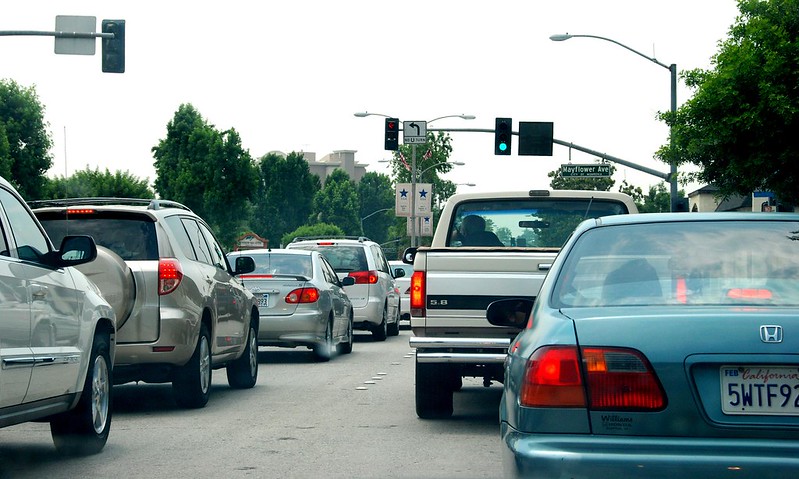In today’s America, cars are inseparable from our national identity. It speaks to the values of independence and freedom that defines the American dream. The act of setting out on the open road and charting your own path is a call back to our heritage as pioneers, explorers and cowboys.
Are cars really all that, though? In truth, our society’s love of cars is based more on illusions of freedom and convenience than actual improvements to our lives.
To see how cars’ promise of freedom only goes so far, look no further than car commercials. The quintessential car commercial today usually depicts a couple driving along a rugged bluff overlooking the Pacific Ocean, or a family rumbling down some scenic backroad in Montana in their Subaru; all finding fulfillment off the beaten path.
You’ll never see a car commercial set in bumper-to-bumper traffic because it perfectly sums up the inefficiency and irony of driving everywhere in non-rural areas.
Peeling back the facade of cars’ benefits reveals that, while they are beneficial in moderation, we have become so reliant on them that they cause more harm than good. This is obscured by Ads romanticizing the individual’s pursuit of the open road, and the sheer force of our association of cars with the core American values of independence and individualism.
Don’t get me wrong: the car is at its most useful in rural areas. The car is most productive in sparsely populated areas where travel by foot, bus or train is simply not as efficient.
The problem with this idea is that America is a mostly urban nation. Most Americans do not live in the remote countryside; more than 80 percent of us live in an urban area, including highly populated suburbs and cities. Most trips we make by car could be done in a cheaper, faster and more sustainable fashion with mass public transportation.
According to a Bureau of Transportation Statistics study, 52 percent of all trips taken in 2021 were less than three miles, with 28 percent of them less than a mile. Substituting these short-distance trips with buses, light rail, subways and bike infrastructure would go a long way to reduce our traffic woes.
To challenge the problems stemming from our over-reliance on cars, we must first challenge the anti-urban, everyone-for-themselves mindset enabling it.
If people want to live like they’re in the country, then they should live in the country. What they shouldn’t do is hoard valuable urban land and resources at the expense of everyone else. As we are in the throes of both a national housing crisis and climate change, using our space and resources for the many rather than the few is more important than ever.
By challenging our need for cars as a matter of convenience and an expression of core values, as well as the wasteful, isolating lifestyle they enable in urban areas, we can start on the path towards reducing our dependence on cars and create a more sustainable and fulfilling way of life.
The notion that a car lets you chart your own path in life separate from the masses falls flat when you’re driving to the same destination as so many other cars around you. As you become mired in the same traffic as everyone else – collectively caused by stubbornly driving alone to the same places – you realize just how intertwined our lives really are.
Because we have developed such a strong cultural attachment to cars, we have come to accept car dependency. However, it is only a recent development of the last century. American towns and cities were not too long-ago places where you could step out of your front door and walk or bus to your destination.
Our current addiction to cars arose from a concerted effort to make them the only way to get around. This included policies such as requiring the separation of homes from businesses, requiring excessive parking for every building, and destroying walkable neighborhoods, often ones that were predominately African-American and minority, with highways.
The restructuring of our society as car-dependent was a recent, avoidable development. That means we can also return to a society more centered around people. This is easier said than done, of course. Especially because many Americans prefer to keep their gated communities and country clubs.
To fight the culture of individualism and hyper-privatized living that has sustained car culture, we must also challenge the importance of American individualism as a whole. That means a country where in most places, a car is an option rather than a necessity.
As our country becomes continuously more polarized, it is more important than ever to show we are freer going places together than alone.
Liam Rue can be reached at [email protected].


















